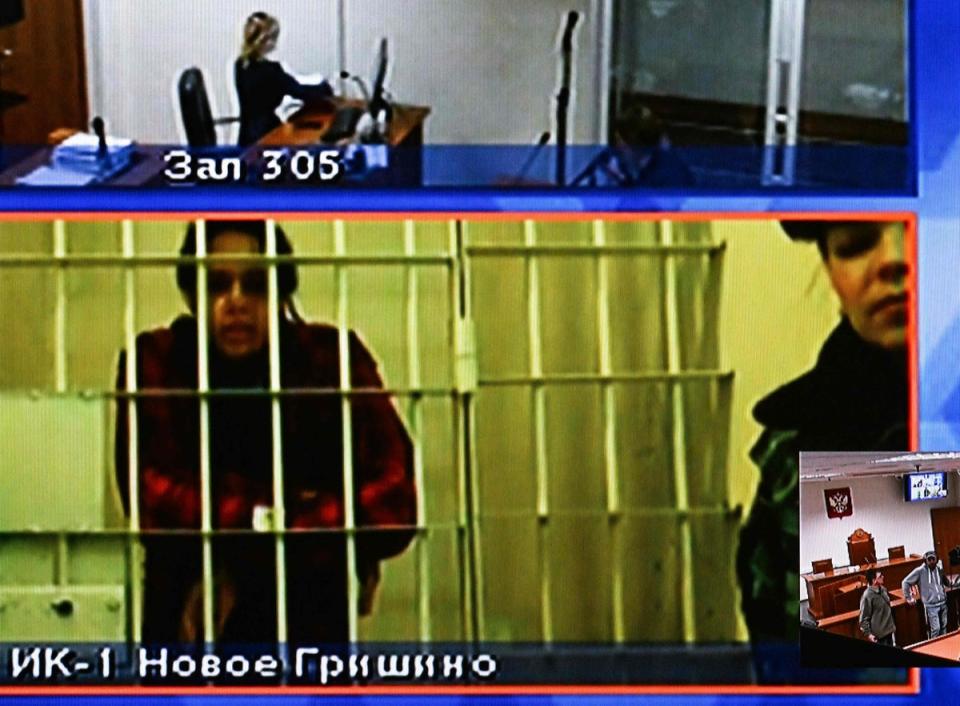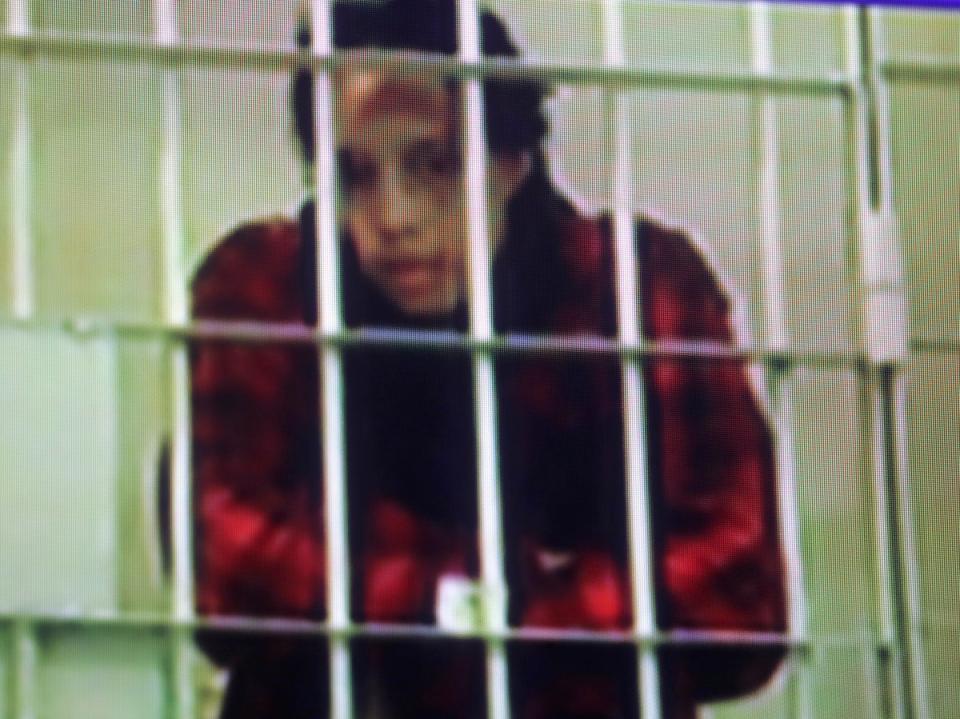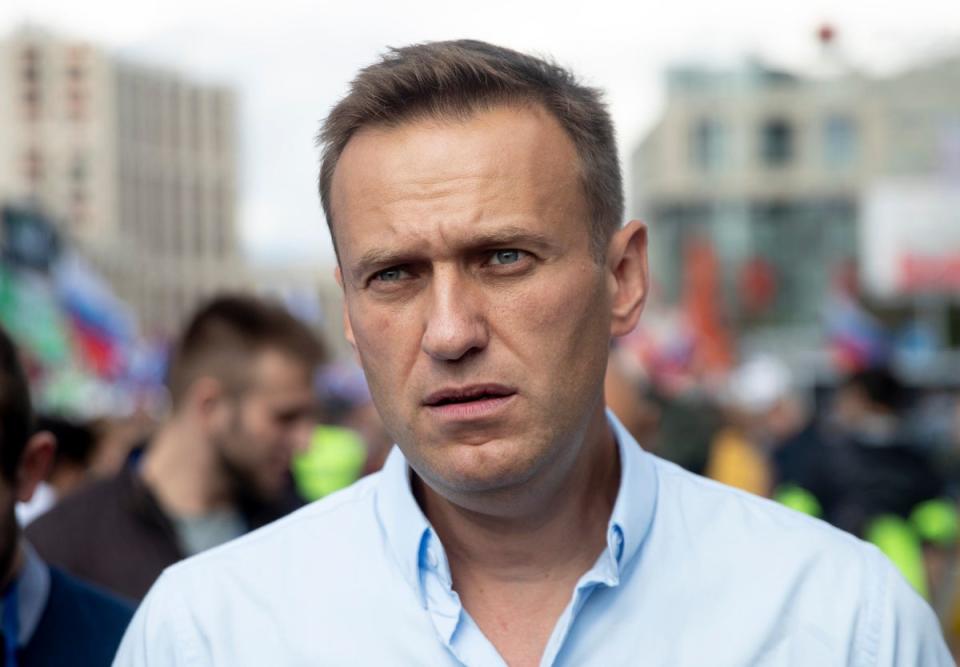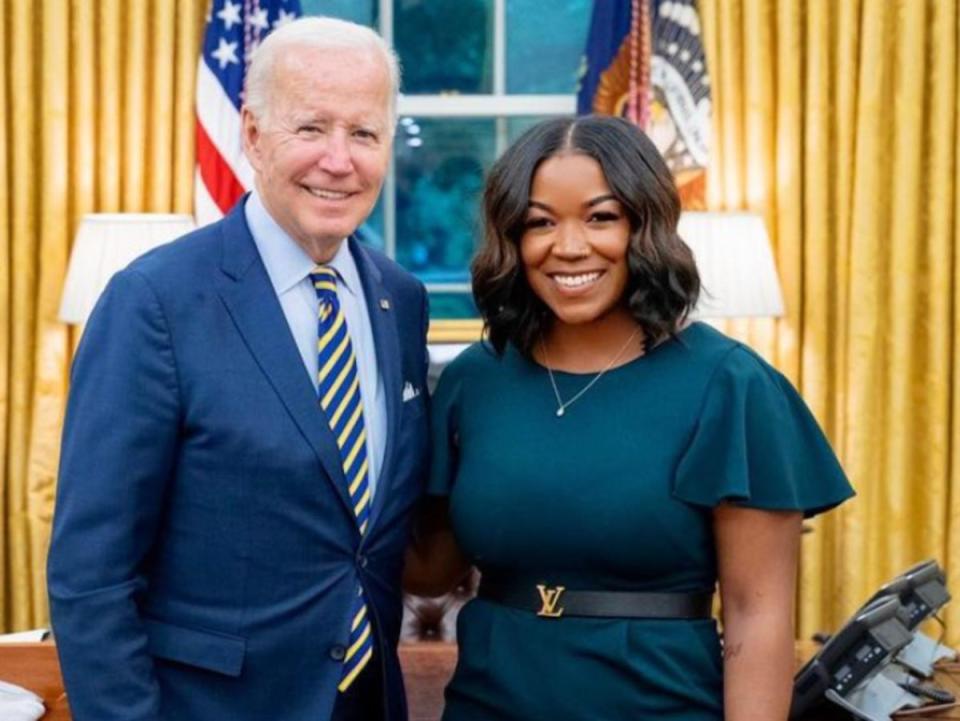What is a penal colony? Brittney Griner follows Navalny and Pussy Riot to notorious ‘concentration camp’ prison
- Oops!Something went wrong.Please try again later.
Brittney Griner’s attempts to appeal a nine-year prison sentence for possessing and smuggling vape cartridges containing cannabis oil into Russia came to a grinding halt after a three-judge panel upheld the summertime sentence.
Tuesday’s verdict was delivered shortly after the 32-year-old WNBA star’s defence team outlined the many reasons why they believed the “excessively harsh” sentence should either be acquitted or, at the very least, reduced.
“The punishment imposed on Griner does not correspond to the gravity of the crime,” Maria Blagovolina, one of Ms Griner’s lawyers, said at the Moscow Regional Court. “Nine years in prison is a sentence that contradicts judicial practice.”
The eight-time all-star centre with the WNBA’s Phoenix Mercury and a two-time Olympic gold medallist was convicted on 4 August after police said they found vape canisters containing cannabis oil in her luggage at Moscow’s Sheremetyevo Airport back in February.
Ms Griner said while delivering her final statements via video link that she hoped the fact that she cooperated and pleaded guilty to the charges in July would be taken into account when the judges considered her appeal.
“This has been a very traumatic experience, waiting for this day, waiting for the first court day and getting nine years,” began the imprisoned basketball star via a grainy video feed, as she wasn’t in attendance in the courtroom and was instead being held at a detention centre outside of the capital.
She added in her address that people with more severe crimes had received considerably less harsh sentences.
“I apologise for the mistake, I did not intend to do this,” Ms Griner said. Those pleas, it would seem, would not make a difference to the presiding judges, who returned to announce that the court’s earlier sentence would be upheld.
The remaining time on Ms Griner’s sentence, they noted, would, however, be recalculated to account for her pre-trial detention time served. One day in pre-trial detention will be counted as 1.5 days in prison, the Russian court said, so the basketball player will have to serve around eight more years in prison.
Those eight years will likely be served out in one of Russia’s penal colonies, where inmates are reportedly forced to endure 16-hour workdays and watch nonstop state propaganda.
Here, The Independent breaks down where Ms Griner is expected to carry out the remainder of a prison sentence that the White House has branded a “sham”.
Where has she been held until now?
On 17 February, the 32-year-old gold medallist was detained in Russia after airport officials allegedly found her to be travelling through the Sheremetyevo International Airport in Moscow with cartridges containing hashish oil in her luggage.
For the past eight months, while Ms Griner was awaiting trial and then later, an appeal hearing, she has been held at a detention centre outside Moscow.

Her wife, Cherelle Griner, told CBS Mornings earlier this month that she has only had contact with her spouse twice during her internment. That recent conversation, she relayed to the news outlet, was so upsetting that it caused her to weep for days afterward.
“It was the most disturbing phone call I’d ever experienced,” she told the interviewer, Gayle King, adding that her wife worried about being abandoned in Russia.
Conditions inside the detention centre are reportedly slightly better than the harsh prisoner camps – where Ms Griner is expected to head in the “next few months”, her lawyers confirmed outside the courtroom after her appeal was rejected, but they’re still not good.
A bed was only recently outfitted to accommodate the athlete’s 6ft 8in frame, and temperatures frequently fluctuate inside between being too hot and too cold because of the building’s uninsulated stone infrastructure.
According to a recent report from ESPN, the basketball star hasn’t touched a ball since being locked up in February. The facilities where she has been held have a hoop, and her lawyer said that she’d previously offered to provide a ball for the American, but she declined the offer, suggesting that it’s “too painful” for her to play the sport she loves in her current conditions.
What is a penal colony?
Lawyers for Ms Griner confirmed that their client would soon be transferred from the detention centre where she’s been held since February to a penal colony, but that that wouldn’t happen for another few months.
But what the US de facto hostage has to look forward to is something entirely less appealing than the small prison cell she’s been hunkering down with two other cellmates in recent months.
Prisoner colonies, with about 650 of the institutions scattered largely across the country, are considered to be descendants of the Soviet Union-era gulags, the New York Times reported.

The facilities are constructed to house an overcrowding number of inmates in barrack and dorm-style complexes, where each incarcerated person is expected, if not directly ordered, to carry out manual or hard labour.
While Ms Griner’s fellow inmates are considered to be less dangerous to the public, as the more serious offenders are typically kept in more secure facilities, that does not translate to a safer or more enjoyable experience.
Overcrowding, unsanitary conditions, insecure heating and food shortages were just some of the systemic issues unearthed in a report released from the US Department of State last year.
More troubling, however, were the insidious issues flagged by local human rights groups in the report, which included torture and sexual violence, with political prisoners having a particular mark on their back for these offences.
LGBT+ prisoners, such as Ms Griner, are more often targeted in these attacks, the report noted, highlighting a specific instance where a Chechen prisoner who prison guards suspected of being gay was reportedly suffocated and subjected to electrical shock for hours.
One of the penal colony system’s more famous inmates, opposition leader Aleksei Navalny, detailed in a New York Times interview last year about the harsh conditions he was frequently subjected to.

“You need to imagine something like a Chinese labour camp, where everybody marches in a line and where video cameras are hung everywhere,” he said while describing how he was forced to follow a gruelling schedule of callisthenics followed by daily sessions of screen time where he and others watched hours of pre-programmed state propaganda. “There is constant control and a culture of snitching.”
Because of poor hygiene and overcrowding – most colonies don’t meet the Russian required standard of two square metres of space per inmate and even that is 50 per cent of the standard stipulated in the European Convention on Human Rights – there are often outbreaks of epidemics that can turn fatal.
Can she appeal the decision again?
In a statement delivered outside the Moscow courtroom where Ms Griner’s appeal was rejected, lawyers representing the American decried the verdict as having “numerous defects”.
“We are very disappointed,” Ms Griner’s lawyers said in a statement. “The verdict contains numerous defects, and we hoped that the court of appeal would take them into consideration.”
The defence team added that the decision now rests with their client, who they would be speaking with in the next few days, about whether they would go on to pursue a further appeal.
“We need to discuss this with our client,” the statement said. “We generally think that we must use all the available legal tools, especially given the harsh and unprecedented nature of her verdict.”
If Ms Griner does decide to further exhaust her legal options, it would mean taking her case to two higher courts above the appellate vision, with the last option being the country’s Supreme Court.
It is not common for higher courts in Russia, however, to overturn cases of such geopolitical import to the Kremlin, which Ms Griner’s case appears to be given the Biden administration’s reported talks with Russian backchannels to arrange a high-profile prisoner swap between the basketball star and Russian arms dealer Viktor Bout, who is serving a 25-year federal prison sentence in the US.
What about a prisoner exchange?
Ms Griner’s lawyers more or less put the fate of their client up to American officials on Tuesday, after they said in a statement outside the Moscow courtroom that the team hoped the 32-year-old could be released in a prisoner exchange with the US.
“We hope that an exchange is possible,” said defence lawyer Alexander Boykov on Tuesday.
National Security Adviser Jake Sullivan intimated that this option seems to have been actively pursued by the Biden-Harris administration, particularly so in the last few weeks as US officials have been engaging “with Russia through every available channel” to “bring home Brittney”.

“President Biden has been very clear that Brittney should be released immediately,” said the national adviser in a statement released Tuesday, minutes after the verdict in the “sham judicial proceeding” had been announced.
“The President has demonstrated that he is willing to go to extraordinary lengths and make tough decisions to bring Americans home, as his Administration has done successfully from countries around the world,” he added, noting that the administration continues to be in touch with representatives of Ms Griner and detained American marine Paul Whelan’s families.
This past summer, as the Biden administration faced increasing pressure to secure a deal to get Ms Griner back home, US Secretary of State Antony Blinken took the unprecedented step of announcing publicly that Washington had made a “substantial proposal” to get the WNBA star home, alongside Paul Whelan, an American serving a 16-year sentence in Russia for espionage.
Though the US Secretary of State provided scant details outside of that bold announcement, news outlets like the The Associated Press and others reported at the time that Viktor Bout, a Russian arms dealer who is serving a 25-year sentence in the US and once earned the nickname the “merchant of death”, had been floated as the prisoner to exchange for the two American hostages.
There is recent precedent for these kinds of exchanges, as back in April the two Cold War countries carried out a similar arrangement that saw Moscow release Marine veteran Trevor Reed in exchange for Washington turning over Konstantin Yaroshenko, a Russian pilot who was convicted in a drug trafficking conspiracy.
Some legal experts, however, speculate that this kind of exchange wouldn’t occur until all legal avenues are exhausted.

